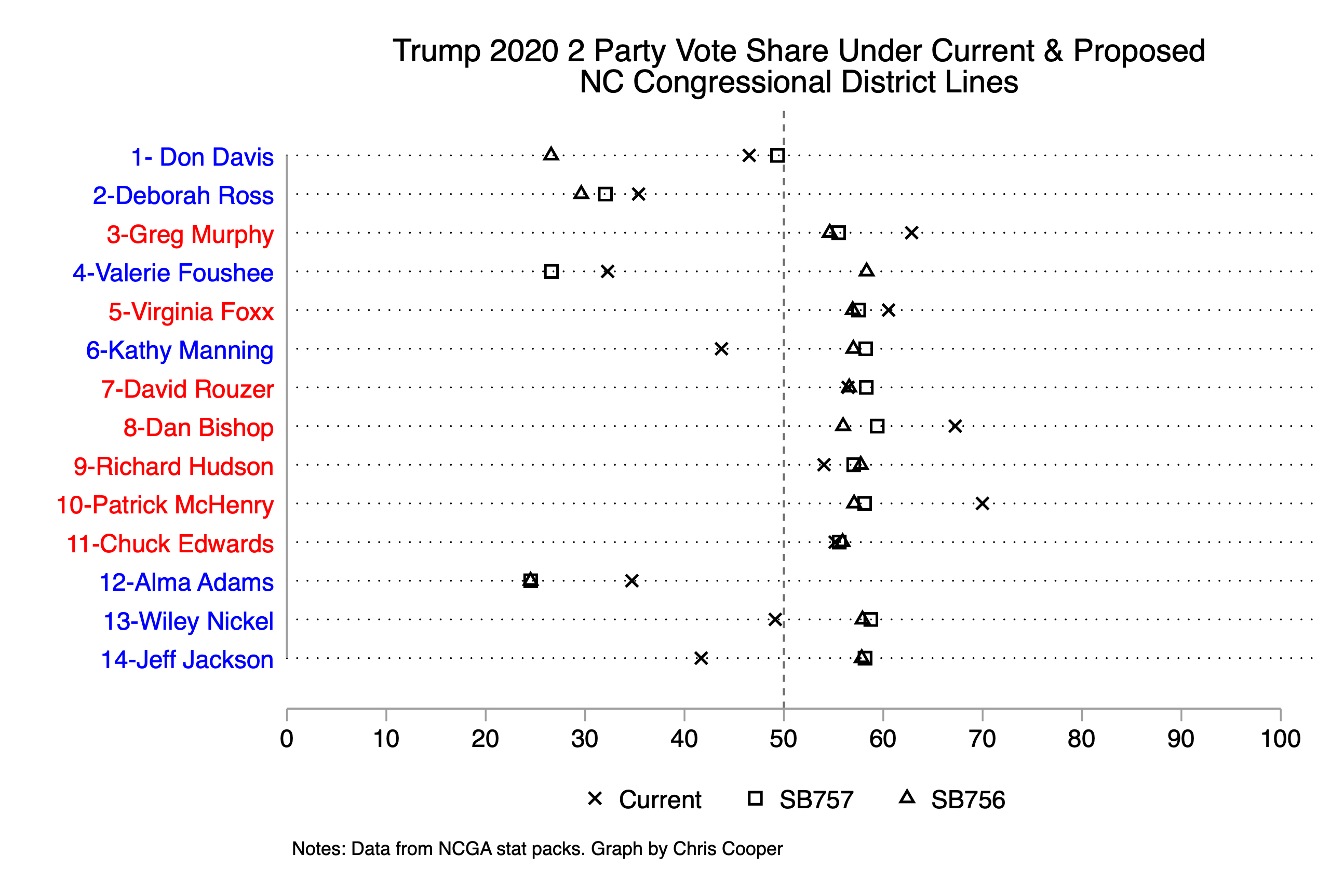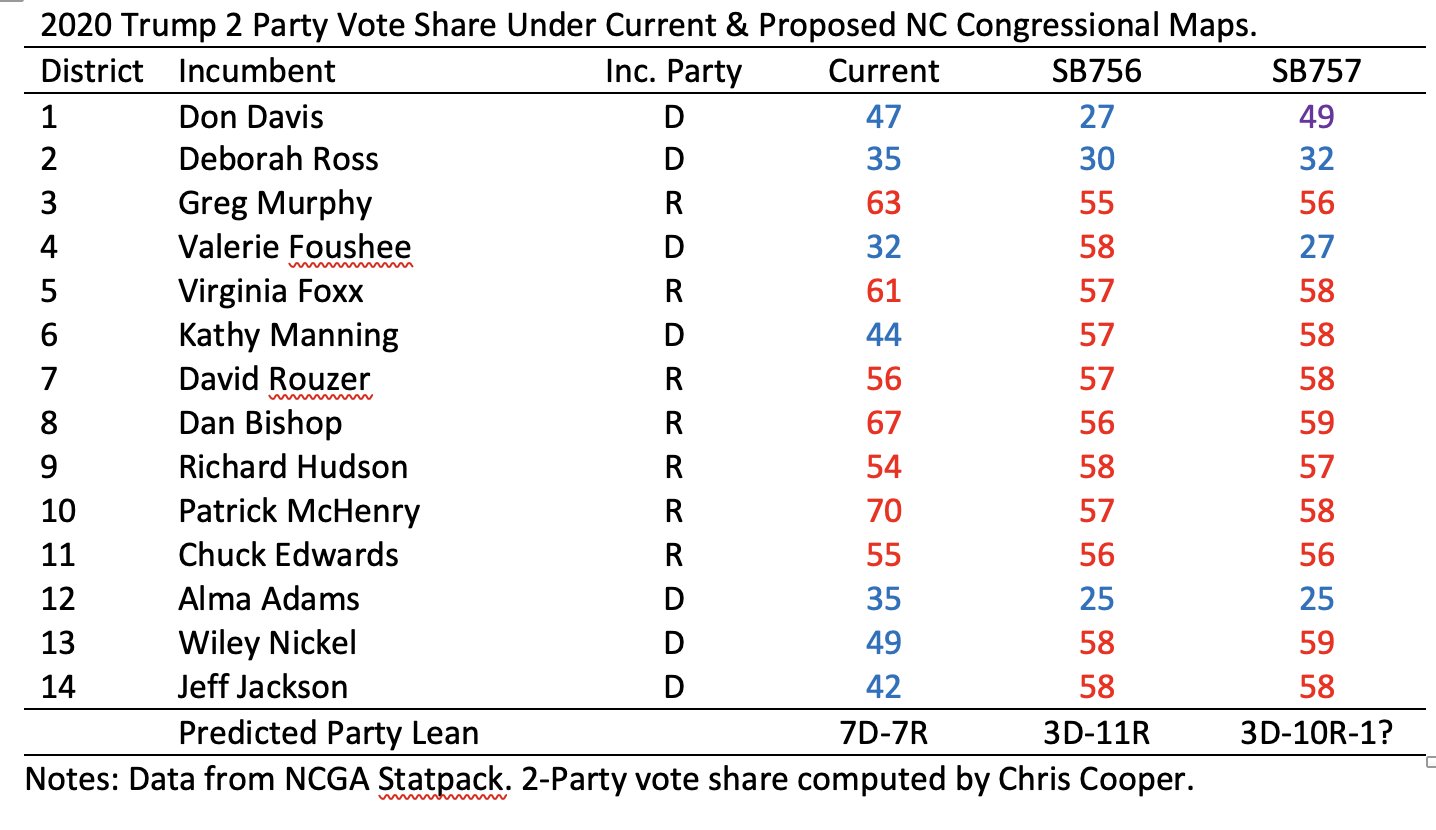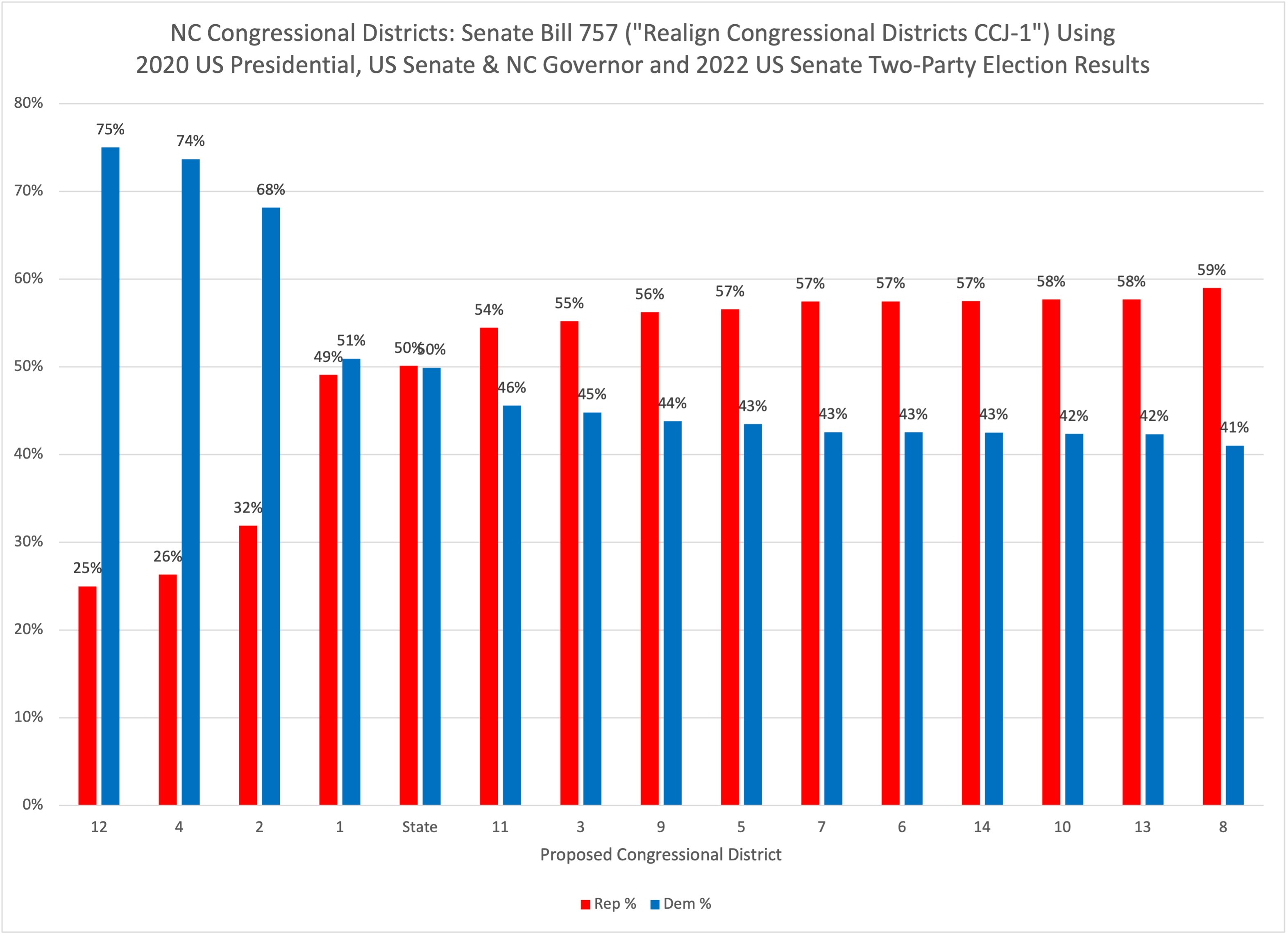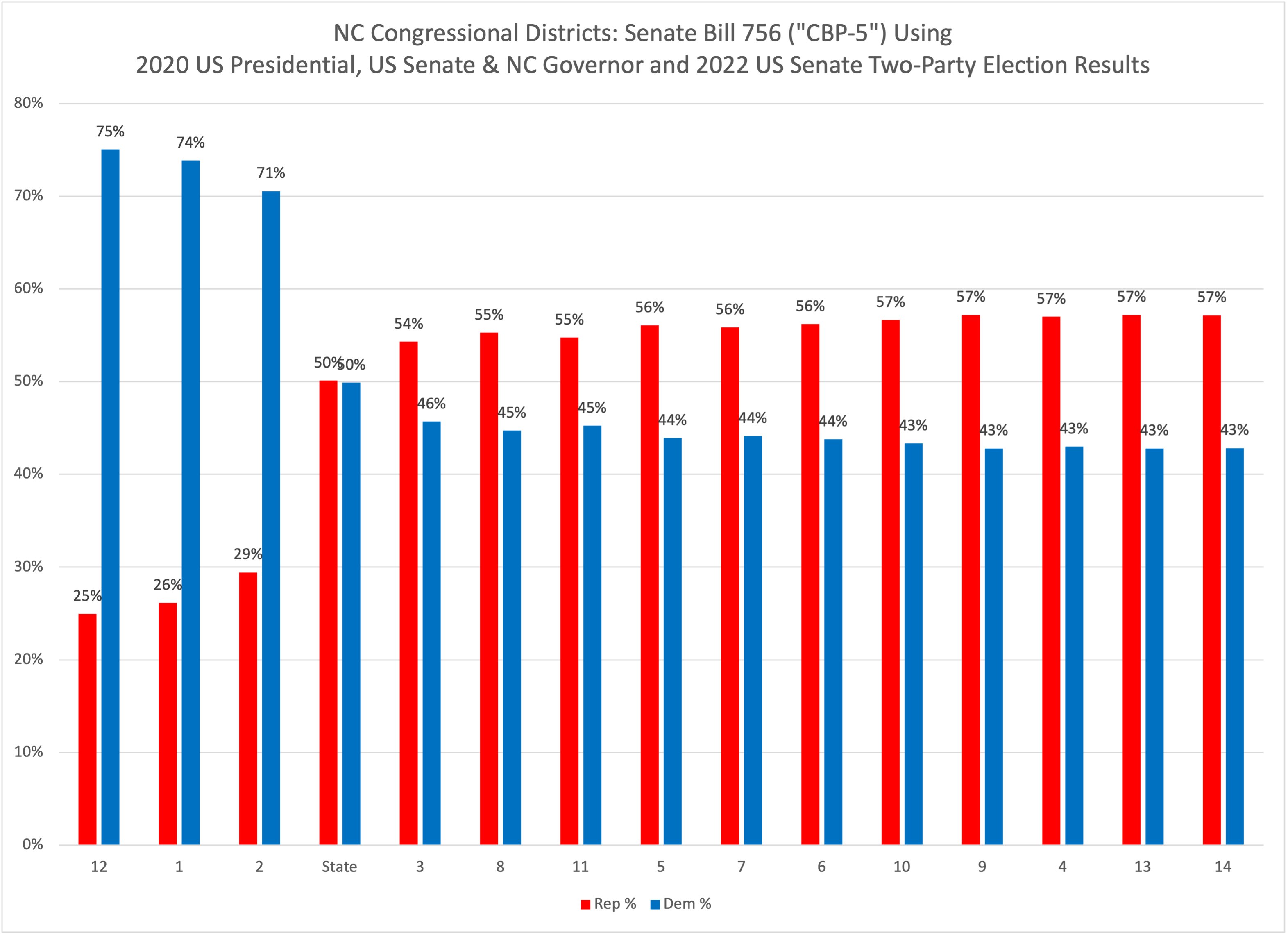by Christopher Cooper
As readers of this blog are no doubt aware, new maps dropped for North Carolina's congressional, state house and state senate districts last week. All four of us have been busy trying to understand what these maps might mean for representation in the Old North State. Here are a few quick links, graphs and tables that we hope will help others trying to do the same.
- Our friends at The Assembly asked me to provide 5 quick takeaways about the maps.
- This one's pretty regionally targeted, but if you want to understand what these maps might mean for Western North Carolina, I wrote a quick explainer (updated Oct 24).
- Jonathan Mattingly and the Duke Quantifying Gerrymandering Team put together an impressive analysis of the new maps
- Tyler Dukes and David Newcomb at the News and Observer provide a masterclass in data journalism in this piece.
- Want to Play with the Maps Yourself and explore what's changed? Here's a nifty tool from Redistricting and You, a project at the City University of New York.
- The Stephenson county clustering rule is both important and complicated. Blake Esselstyn has the best explainer I've found.
- There's lots of talk lately about partisan lean. I tried to explain what it all means (and doesn't mean) last year.
- If you just want the bottom line about what the potential congressional maps might do for partisanship, I've pasted some tables & figures below from Michael Bitzer and myself.
First--my graph and table (same data, just presented in different ways) about Trump 2-party vote share by current and proposed districts.


Second, Michael Bitzer's analysis using 2020's Presidential, Senate, Governor & 2022's Senate election results.
 | ||||||

And, of course, if you want to learn more about the history of redistricting in North Carolina, there's no better source than Michael Bitzer's Redistricting and Gerrymandering in North Carolina (Palgrave 2021).
--------------------